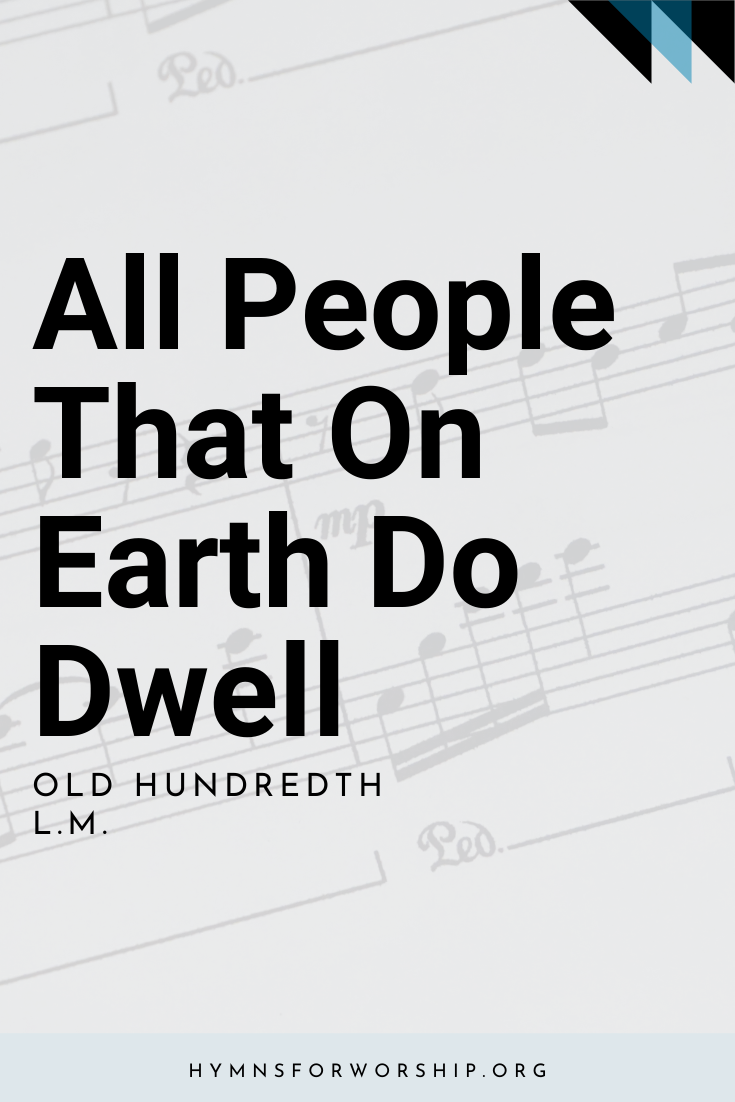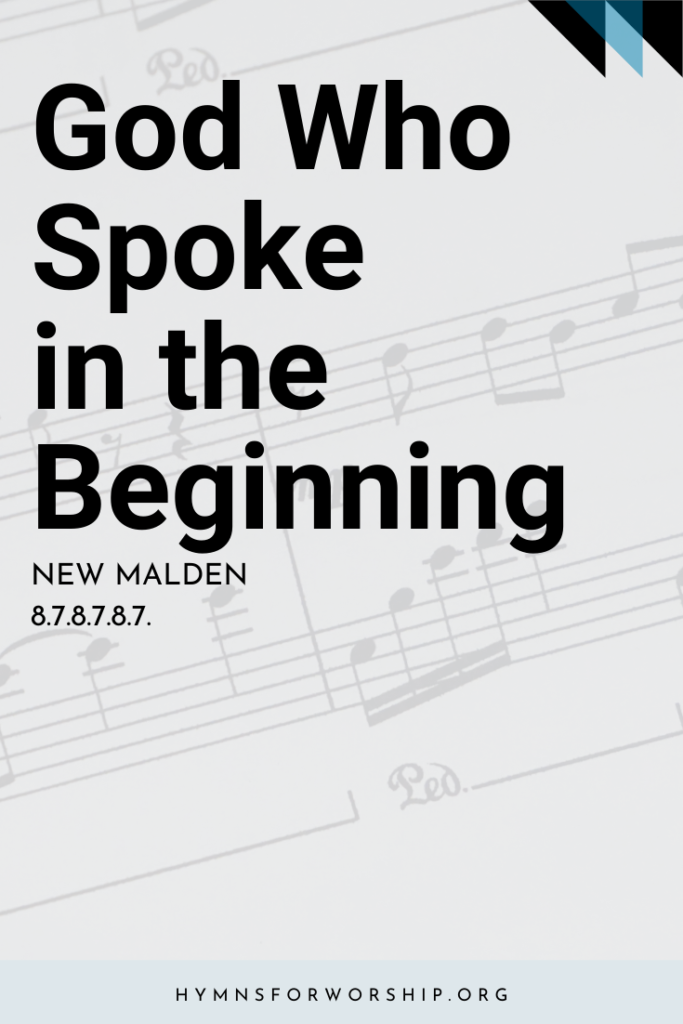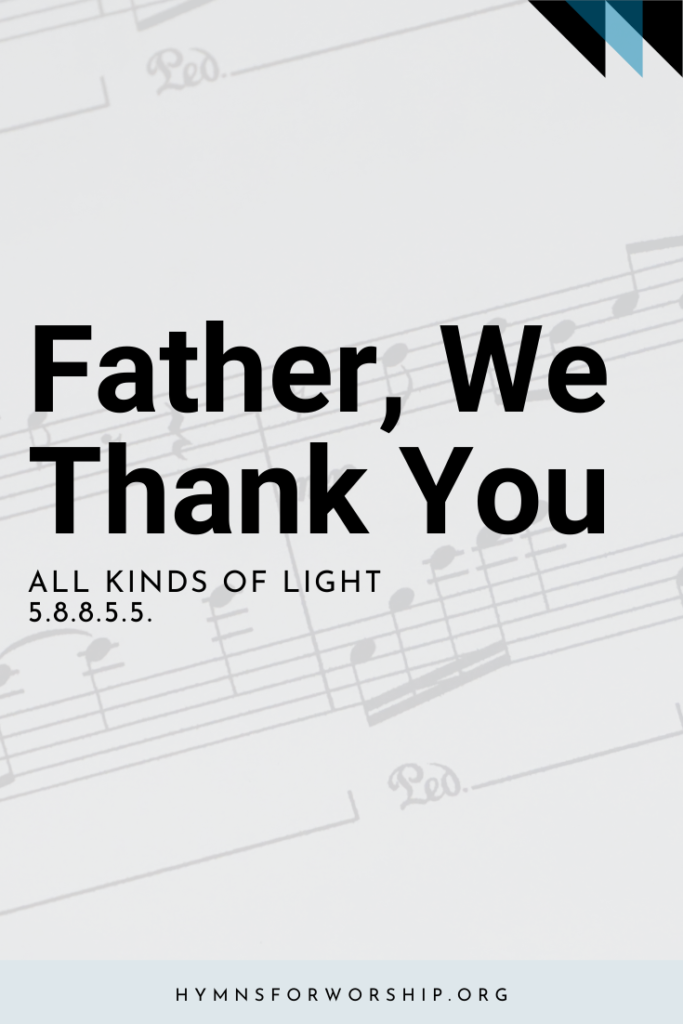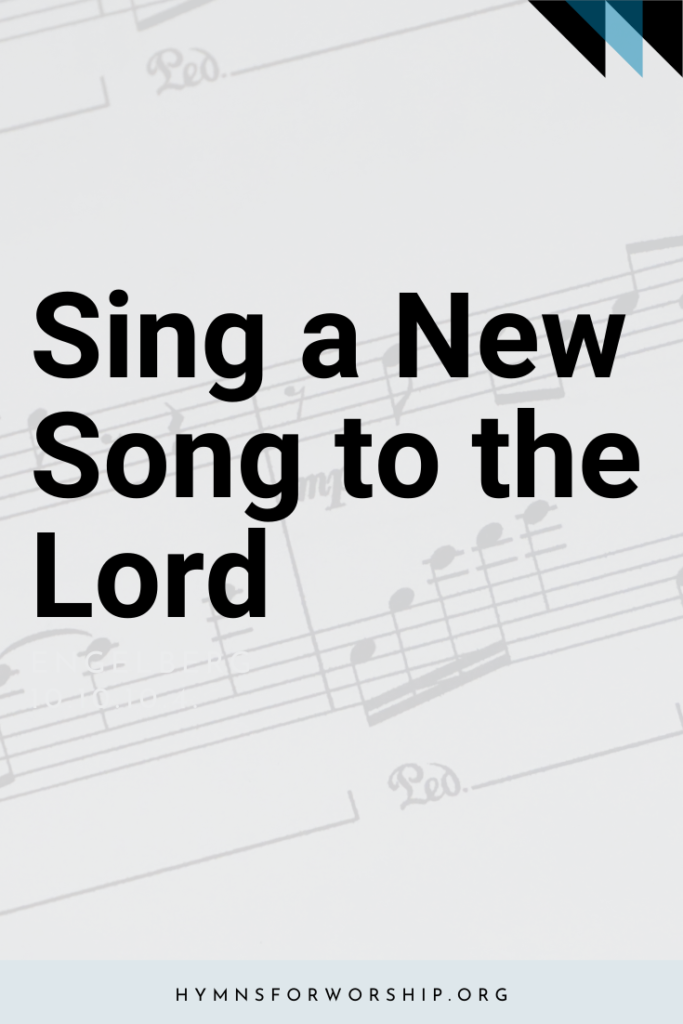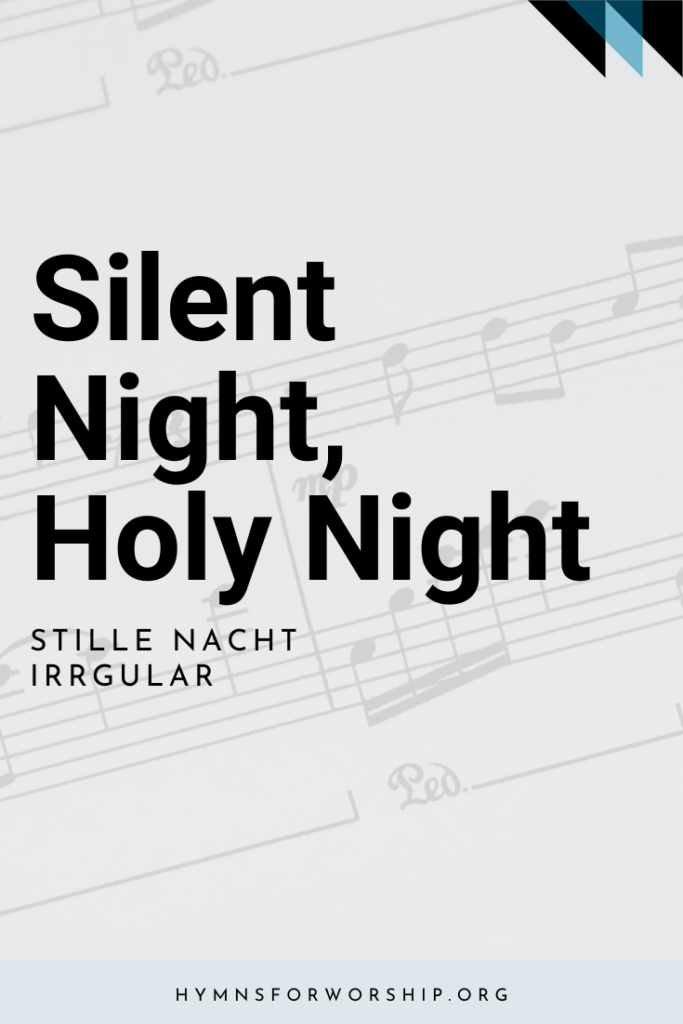WORSHIP >> Adoration & Praise
SDAH 16
All people that on earth do dwell,
sing to the Lord with cheerful voice.
Him serve with mirth, his praise forth tell;
come ye before him and rejoice.
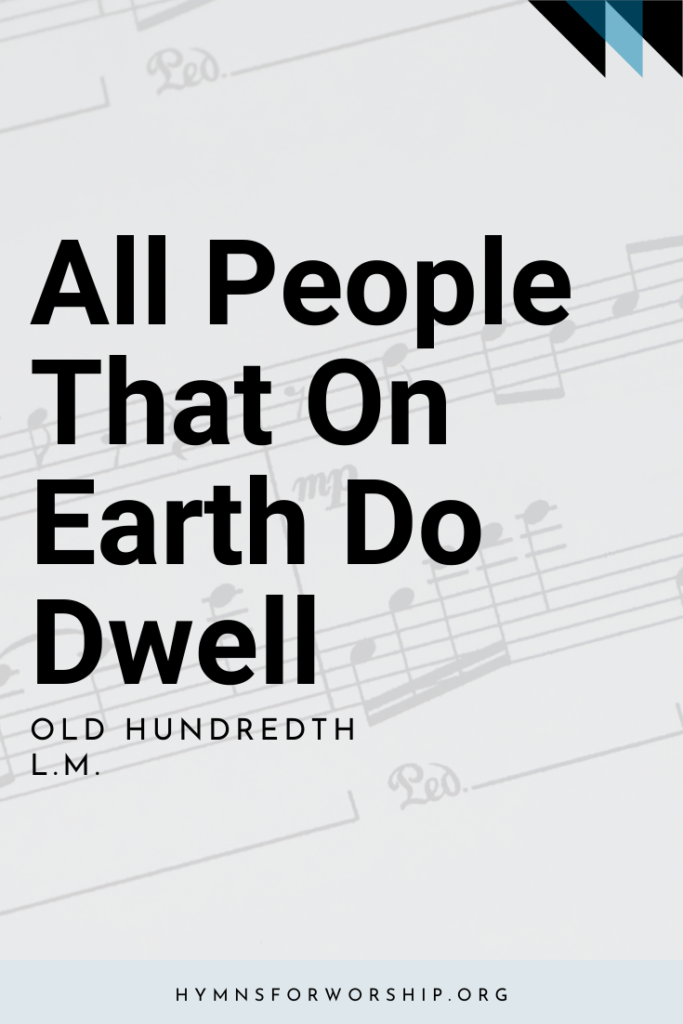

Text
1
All people that on earth do dwell,
sing to the Lord with cheerful voice.
Him serve with mirth, his praise forth tell;
come ye before him and rejoice.
2
Know that the Lord is God indeed;
without our aid he did us make;
we are his folk, he doth us feed,
and for his sheep he doth us take.
3
O enter then his gates with praise;
approach with joy his courts unto;
praise, laud, and bless his name always,
for it is seemly so to do.
4
For why! the Lord our God is good;
his mercy is forever sure;
his truth at all times firmly stood,
and shall from age to age endure.

Hymn Info
Biblical Reference
Ps 100:1-5
Author
William Kethe (? -c. 1593)
Hymn Tune
OLD HUNDREDTH
Metrical Number
L.M.
Composer
Louis Bourgeois (c. 1510-1561)
Year Composed
1551
Alternate Rhythm
SDAH 694
Theme
PRAISE & ADORATION
Hymn Score
Piano Accompaniment
Notes
Get to know the hymns a little deeper with the SDA Hymnal Companion. Use our song leader’s notes to engage your congregation in singing with understanding. Even better, involve kids in learning this hymn with our homeschooling materials.
This hymn is a metrical version by William Kethe of Psalm 100. It keeps as close as possible to the actual words of the psalm, transposing the order to preserve the rhyme, and using synonyms at times to maintain the meter and accent. This practice often produced quaint English and led the way to paraphrases, as for example in SDAH 82, which carries the ideas of Psalm 100 but in quite different words. The italicized phrases in the following quotation are actually used in the hymn: “Make a joyful noise unto the Lord, all ye lands. . . . Come before his presence with singing. Know ye that the Lord he is God: it is he that hath made us, and not we ourselves; we are his people, and the sheep of his pasture. Enter into his gates with thanksgiving, and into his courts with praise: . . . bless his name. For the Lord is good; his mercy is everlasting; and his truth endureth to all generations.”
William Kethe, whose birthdate is unknown, is thought to have been a native of Scotland. He became a minister of the Presbyterian Church and fled his country during the religious persecution under Queen Mary. He found refuge with John Huss and John Knox in Geneva, and is noted as being an exile in Frankfort in 1555 and in Geneva in 1557, and he visited exiles in 1558. He remained in Geneva for a time after Mary’s death and was one of the scholars who prepared the English translation of the Geneva Bible in 1560. In the Anglo-Genevan Psalter of 1561 there were 25 metrical versions of the Psalms by Kethe, this hymn being one of them. He returned to England and in 1563 was chaplain to the armed forces. He was appointed as one of the rectors at Child Okeford, a small village five miles northwest of Blandford Forum in Dorset. He served here from 1561 to 1593 and wrote religious and secular ballads. He died in Dorset, probably at Child Okeford, in 1594.
The tune OLD HUNDREDTH, used also for SDAH 695, and written entirely in quarter notes for SDAH 694, is so named because it was the tune set for Psalm 100 in the Sternhold and Hopkins (1562) version of metrical psalms. This was called the “Old Version” when Tate and Brady produced a “New” version in 1696. The tune appears in a Huguenot psalter compiled by Guillaume Franc (died 1570) and published in Geneva in 1551 (hence its name, Genevan Psalter), where it is set to Psalm 134. It was adopted by Louis Burgeois (c. 1510-c. 1561), who was born in Paris but went to join John Calvin in Geneva in 1541. There he was choirmaster of St. Pierre and St. Gervais churches, and in 1545 master of the choristers. He was granted French citizenship in 1547 in view of his musical contributions and also for his teaching of the children. He was the musical editor of the first French psalter of 1542 and prepared twopsalters in 1547, which carried harmonies. This offended Calvin, who permitted the singing of the melody only in the Reformed churches, and caused Bourgeois to leave Geneva in 1552. The latter’s Genevan Psalter, printed in 1551, had led to his imprisonment, though only for a day, for altering some tunes without authority. He lived in Lyon, and by 1560 in Paris again, but after 1561 no more is heard of him. He is remembered for arranging and preserving some of the fine tunes still in use today. He altered some secular melodies, adapted German psalm tunes, and stimulated congregational singing in Geneva.

